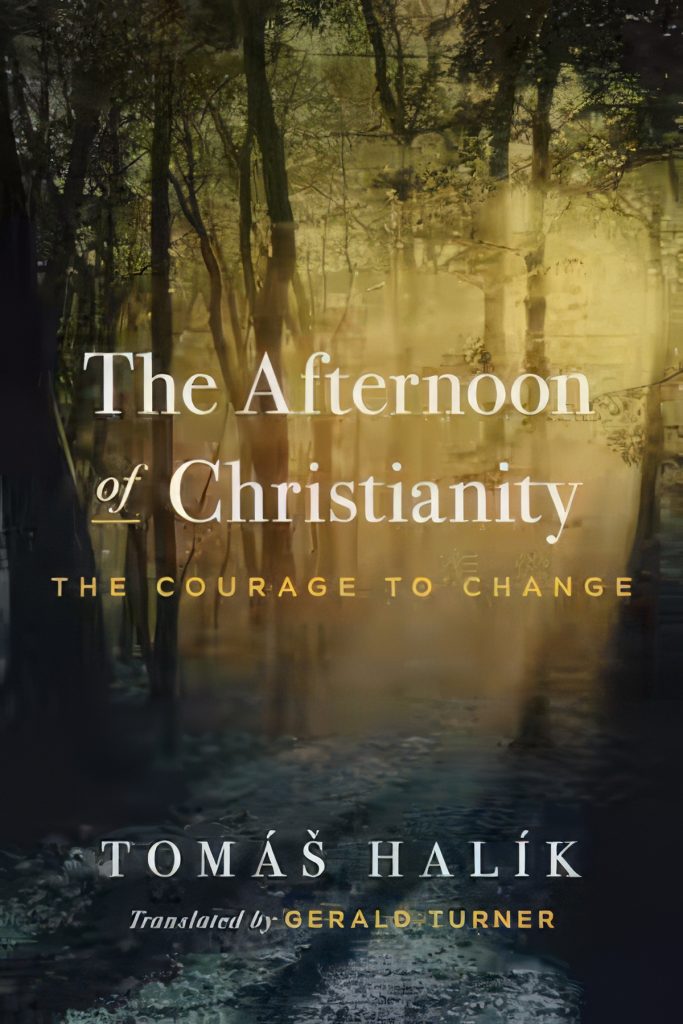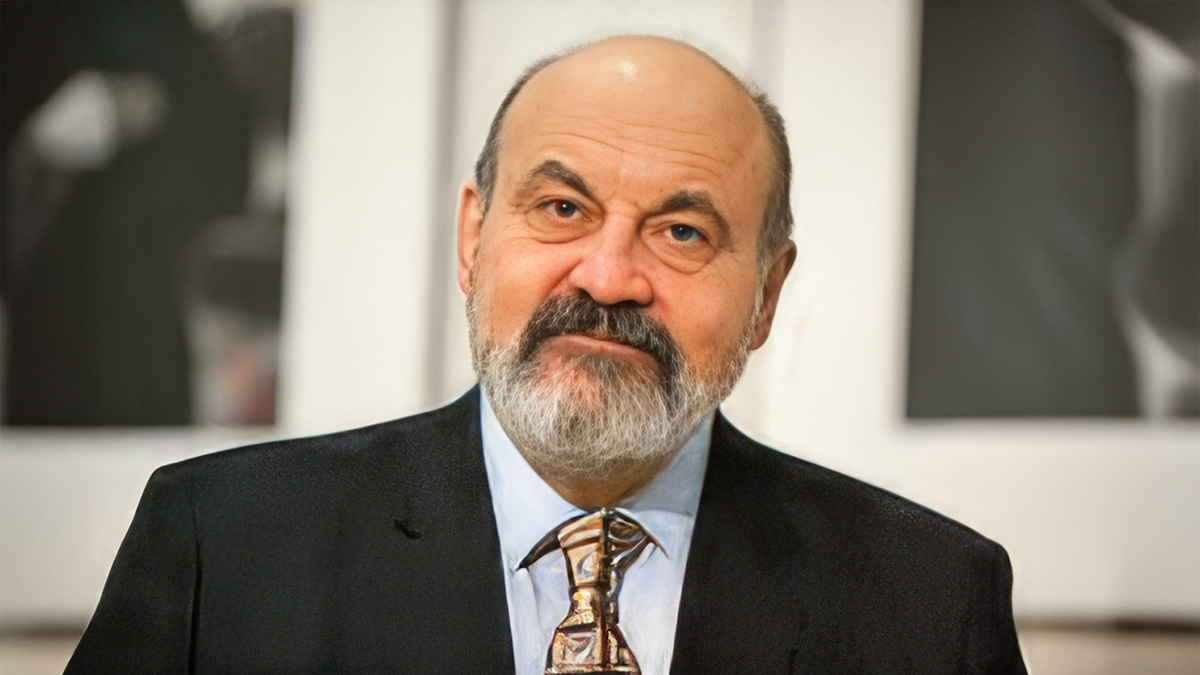La Croix: In your book — The Afternoon of Christianity — paints an unfiltered picture of the church’s current state. Where do you think it stands in its history?
Tomáš Halík: In The Afternoon of Christianity I apply a metaphor Carl Gustav Jung used to describe human development: childhood and youth are the “morning of life,” followed by a “midday crisis”—the classic midlife crisis—whose resolution can lead to the “afternoon of life,” a time of maturity.
I argue that the premodern era was Christianity’s “morning,” a time when doctrinal and institutional structures were being built.
The following centuries, marked by the Enlightenment, modernity, secularisation, critiques of religion, and recent scandals, have worn away many of those certainties.
Awakening from the Church’s siesta
Now it’s time to wake up from the church’s “siesta,” to learn from crisis, and to move toward a deeper, more mature form of Christianity.
That doesn’t mean nostalgia for medieval Christendom or culture wars, nor a cheap progressive conformity to the world.
It’s about embarking on a “journey into the depths.”
Imagining a future pope
How could the next pope guide that transformation?
He should be not just the head of the Catholic Church, but a servant of unity among all who seek to worship God not only in a particular sanctuary — be it a church, culture or religion — but “in spirit and in truth.”
That unity can never be fully achieved in history.
We must instead become a community of pilgrims who expand their necessarily limited perspectives through mutual listening and respect, enriching one another through difference.
Synodality and spiritual depth
This shared journey—synodality, as Pope Francis calls it—must extend beyond intra-Catholic or even intra-Christian dialogue.
It calls for a dynamic and evolving understanding of God, who is “all in all” and yet infinitely beyond all our categories, definitions, and concepts.
Christianity’s growth depends on seeing church history as a “continuous event of resurrection.”
The “ever-greater Christ” is still building the “ever-greater church”—not territorially, but by stretching mental boundaries and deepening the understanding of its identity.
In a synodal spirit, Christianity can wake from its nap and enter the mature “afternoon” of its story.
Communicating in a secular age
In the West, how can the church balance adapting to secularised societies without becoming a sterile counterculture or losing its identity in the process?
During the modern era, the church lost its ability to communicate meaningfully with other systems in society as science, philosophy and the arts advanced.
Vatican II was an attempt to break out of a closed Catholic system into a more truly “catholic”—universal—expression, embracing ecumenism and deeper inculturation into non-European cultures.
But this effort to reconcile with modernity and adopt its positive values came too late—modernity was already fading.
Worse, some progressives interpreted aggiornamento superficially, as an uncritical alignment with the zeitgeist and a cheap sell-off of tradition.
Meanwhile, traditionalists failed to understand that tradition is not fossilised; it’s a living process of responsible recontextualisation and creative reinterpretation of the faith.
Institutionalism versus spiritual credibility
Both sides focused too much on institutional and doctrinal structures and neglected the spiritual depth of faith.
The church’s language became unintelligible outside its own institutional “language game,” and clericalism—understanding spiritual authority as power—fuelled scandals rooted in abuse.
All of this has contributed to the church’s loss of credibility and the continuing “exculturation” of Christianity.
Listening to the nones
How can the church engage in real dialogue with spiritual seekers and nonbelievers?
Among the growing number of “nones”—people unaffiliated with institutional religion—it’s important to distinguish committed atheists from agnostics, apatheists (those indifferent to religion), religious “amusiacs” (those without a sense for religion), and genuine seekers.
In this new spiritual continent, the church cannot use classic missionary strategies.
It must begin with listening and a shared journey—syn-hodos—in the spirit of Fratelli Tutti.
The church must become a sacrament—both a sign and instrument—of the unity of humanity and the harmony of our global family with all life on Earth.
This unity will only be fully realised in eschato, not in the middle of history, but we are called to work toward it now by crossing mental and cultural borders.
Teilhard de Chardin once wrote: “I believe the church is still a child. The Christ in whom it lives is vastly greater than the church can even imagine” (The Heart of Matter).
I want that sentence to be the inspiration for my next book.
A prophetic role in turbulent times
As nationalism and populism rise, how can the church maintain a prophetic role amid global instability?
The prophetic role means learning to read the signs of the times—to interpret social and cultural developments theologically, seeking their deeper meaning and possible reflection of the divine.
We must distinguish that from surface-level interpretations shaped by the spirit of the age—ideologies like nationalism, populism, or majority opinions manipulated by demagogues.
Discernment for communities
What tools can help the church in this discernment?
Jesuit Ignatian spirituality places special emphasis on spiritual discernment in the lives of individual Christians.
What we need now is to apply those same discernment methods—alongside the reading of the signs of the times—to entire Christian communities and the church as a whole.
This is central to the synodal renewal Pope Francis has called for: mutual listening, shared decision-making, and collective responsibility.
It doesn’t replace rational analysis, but complements it with a contemplative approach—an openness to dimensions of reality often missed when we reduce life to what we can consciously grasp or express through familiar language and thought categories.
Scripture, tradition and mystery
What about hermeneutics—the interpretation of Scripture and tradition?
Unlike fundamentalists, who claim to know God’s intention and turn religion into ideology, theological hermeneutics must be humble and self-critical.
It must keep asking new questions and crossing mental frontiers.
God is an inexhaustible mystery—the source of a world always changing and being transformed.
Disciples of Jesus are called to remain vigilant, expectant, open-minded and receptive.
History is not just a stream of accidents, nor the product of human will alone—it’s an ongoing dialogue and collaboration with the Lord of history.
Our ability and willingness to listen, understand and respond plays a real role.
God doesn’t live behind history, but within it.
Synodal tensions and diversity
Has Pope Francis’ synodal process deepened the divide across national churches and even within them, over competing ecclesiological and political visions, or helped prevent further fragmentation?
Integrating new elements into the church’s life and tradition often comes with conflict.
It’s clear that the synodal renewal process will unfold at different speeds in different places.
It requires decentralisation, dialogue, tolerance, and acknowledgment of the legitimacy of diverse expressions of Christianity.
Some local churches are ready for specific reforms; others are not.
Too much tension with the dominant culture can lead to the exculturation of Christianity.
Too much conformity can lead to a loss of identity.
Still, the ongoing task of the church is to seek the identity of Christianity amid shifting cultural contexts.
- Tomáš Halík is a Czech theologian and sociologist of religion. He teaches sociology at Charles University in the Czech capital and is the author of several books, the lastest is: The Afternoon of Christianity.
- First published in La Croix International. Republished with permission.


